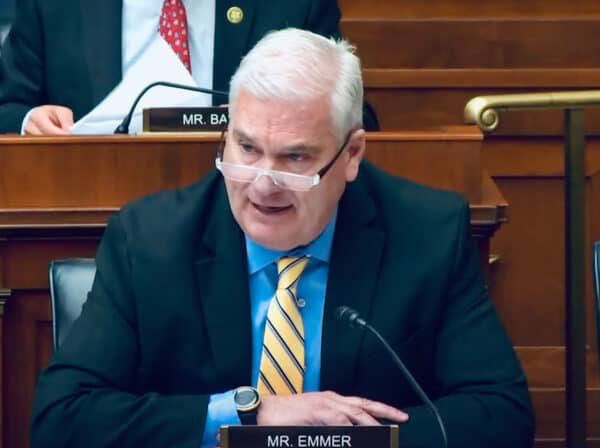
SEC Chair Gary Gensler spent most of the day on Capitol Hill testifying in front of the House Financial Services Committee. As the Committee is currently controlled by the Republicans – which tend to be more innovation-friendly and more supportive of small businesses, some of the questionings pressed the Chair, who frequently gave a non-answer-answer. Gensler has significant inside-the-beltway experience, so much of this is old-hat for the regulator. Some of the Republicans expressed frustration with Gensler and his evasive statements, while Democrats mainly gave him a pass.
The Financial Services GOP Twitter account commented during the hearing to “set the record straight.” While Gensler said one thing, the GOP Twitter account acted as a fact check on certain statements.
Gensler has been widely criticized for his aggressive rule-making agenda as well as the brief comment periods for public feedback. Gensler claimed this was not true, claiming that the comment period for proposed rules was, on average, 70 days. The GOP said this was false as the actual average stood at 45 days.
Chair Gensler claims the average comment period for rulemakings during his tenure is 70 days.
This is FALSE. The average comment period is 45 days—19% shorter than his two most recent predecessors.
See for yourself. 👇https://t.co/lF4vi1yaD8
— Financial Services GOP (@FinancialCmte) April 18, 2023
The GOP lambasted Gensler for his aggressive agenda as he has swamped the process with 53 new rules since becoming SEC Chair.
Chair Gensler has proposed 53 new rules as SEC Chair—twice that of his two most recent predecessors in the same time.
This rushed regulation is justified by paltry economic analysis with limited public input, jeopardizing the quality of our securities laws. 👇 pic.twitter.com/KUokbDcSri
— Financial Services GOP (@FinancialCmte) April 18, 2023
As for digital assets, a sector that Chair Gensler believes must adhere to existing securities laws – as all digital assets are securities (except Bitcoin). The GOP had this to say.
“While refusing to clarify HOW securities laws apply to digital assets, Gensler continues to punish digital asset firms for failing to comply with these laws. This regulation by enforcement regime is pushing innovation overseas and endangering American competitiveness.
While refusing to clarify HOW securities laws apply to digital assets, Gensler continues to punish digital asset firms for failing to comply with these laws.
This regulation by enforcement regime is pushing innovation overseas and endangering American competitiveness. 👇 pic.twitter.com/O4POmKJ5fk
— Financial Services GOP (@FinancialCmte) April 18, 2023
Committee member and digital asset advocate Representative Tom Emmer hammered Chair Gensler as an “incompetent cop on the beat.”
.@GaryGensler is an incompetent “cop on the beat.”
He’s actively putting everyday Americans in harm’s way and pushing American firms into the hands of the Chinese Communist Party👇
— Tom Emmer (@GOPMajorityWhip) April 18, 2023
Committee member Representative John Rose slammed Gensler for exceeding the SEC’s authority with climate rules that breach the SEC’s mandate while piling on unnecessary costs for reporting firms.
Today, @SecGov Chair @GaryGensler will finally answer questions from Congress, after getting an almost two-year pass from Democrats.
The SEC was established to regulate our securities exchanges and protect investors, yet Chair Gensler has expanded his authority to address… pic.twitter.com/uA4dHYJHxo
— Congressman John Rose (@RepJohnRose) April 18, 2023
While much of the discourse is politics as usual, it is abundantly clear that House members must pass legislation that addresses challenging issues like excessive disclosure or digital asset regulation – if it wants to alter Chair Gensler’s regulatory mission.

